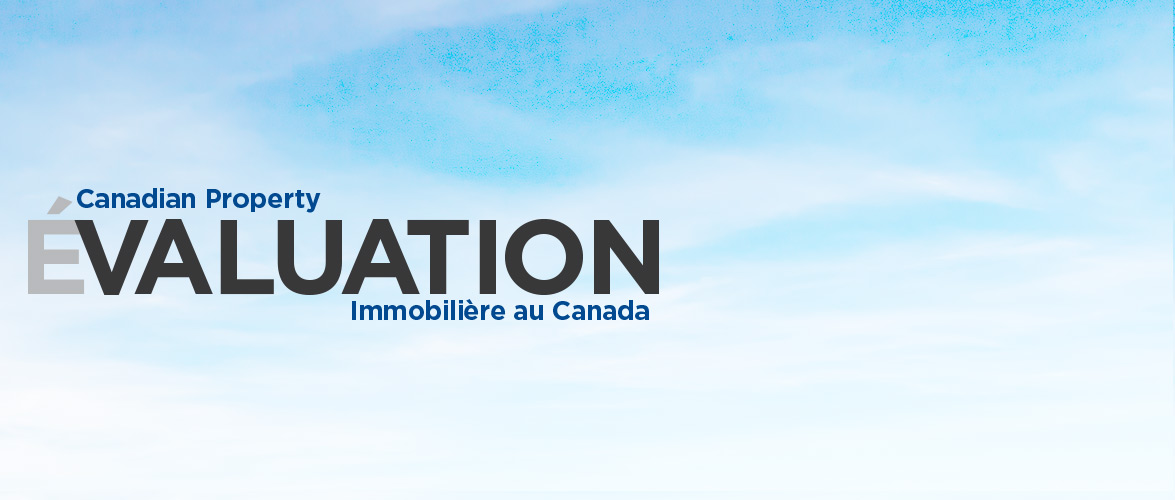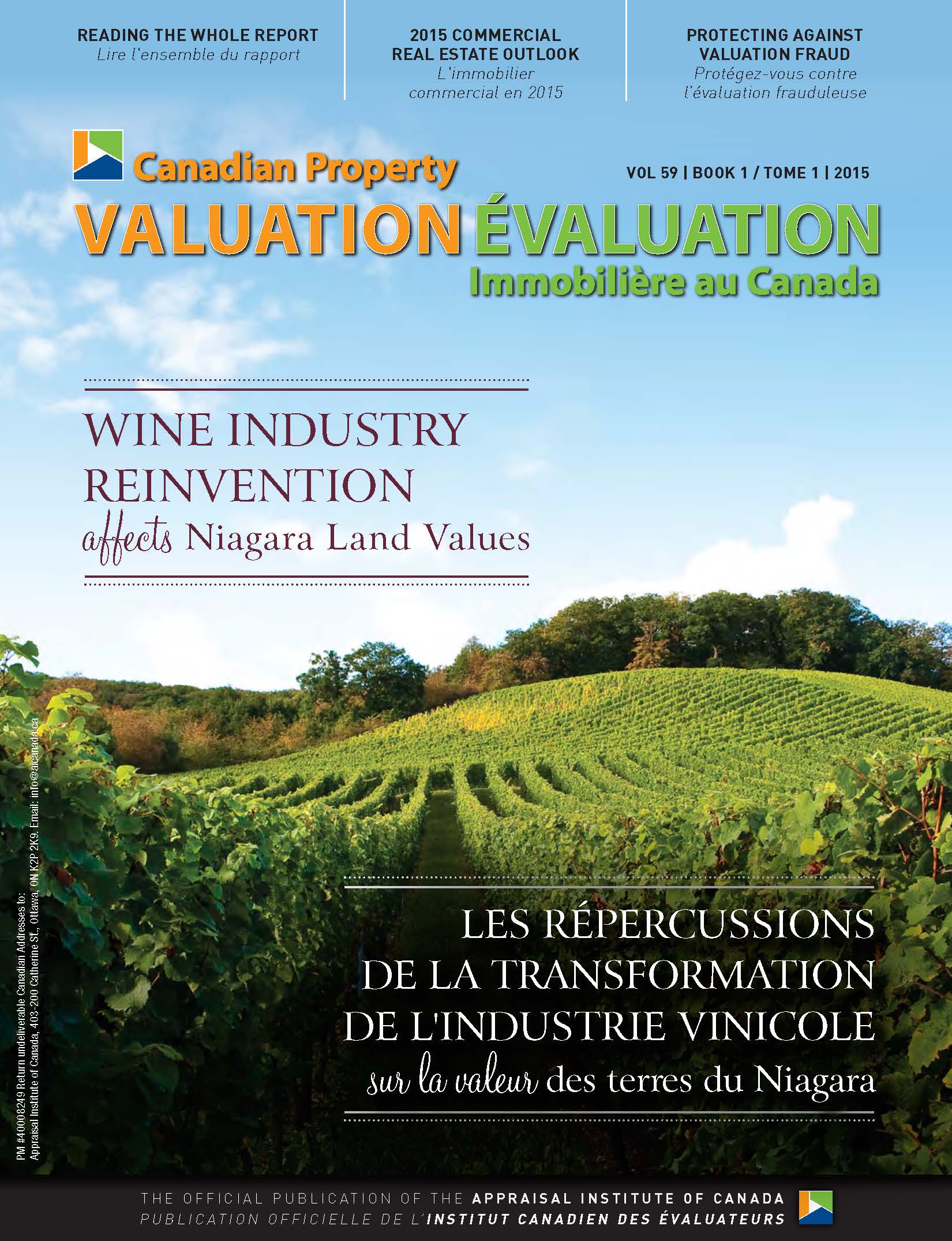THE FUTURE IS BRIGHT – Learning, growing and meeting challenges head on
Canadian Property Valuation Magazine
Search the Library Online
Selina Enayat, AACI, P.App is a Manager in the Financial Advisory Services Group at Deloitte in Toronto. In this position, she audits and manages real estate portfolios that are valued in excess of $40 billion annually. She also carries out appraisal assignments, financial due-diligence for merger and acquisition purposes, impairment testings, and leasehold analysis, both nationally and globally.
How did your interest in real estate and appraising originally come about?
My older sister is in commercial valuations and she introduced me to the field through a summer internship. At different times in subsequent years, I tried alternate career options, from large-scale retail management to being a project controller for a nuclear refurbishment project, but I chose valuation because it offered me a more versatile career and the challenge that I needed.
Real estate valuation is the most important analytic that provides input for property owner decision-making. Every owner needs to make decisions with regards to their assets, whether it is to buy, sell, sub-divide or hold. As a commercial appraiser, I can be involved in all aspects of the asset life cycle for all asset owners and users. This is versatility. My other work experiences were less analytical. The challenges I sought in valuation were the need to convert qualitative aspects of a property to a quantitative value. This was sometimes difficult when the feature was new or had no comparable. A good example of this was the valuation of a medical isotope production facility. There are not too many of those around.
What is your educational background and work experience that led to your current position with Deloitte?
I have a bachelor of Commerce, backed by eight years of experience as an analyst, senior analyst and consultant working for well-known real estate firms. Three years ago, I joined Deloitte as a Manager in the Financial Advisory Services Group. From the beginning of my career, I took ownership of my own growth and development by seeking out mentors to learn from in order to pave an efficient career path for myself. I am a strong believer that one’s competence levels develop through the quality of experience and not necessarily the quantity of years in the field.
What are your career aspirations?
I aspire to be a leader who has strong technical competence and a high level of integrity – a leader who treats people at all levels with great respect and who rewards hard work. I want to be a leader who inspires others and makes a difference on a daily basis through the work that I do. I see many examples of this in the partners at Deloitte and it truly inspires me.
Are there areas of specialization on which you can see yourself focusing?
I have been involved in the valuation of all asset classes, but my passion lies in valuating investment grade assets, such as an office portfolio for a pension fund, for example. I enjoy this area from a work perspective as well as for the type of clients with whom I get to interface. These clients of are very sophisticated and it is inspiring to work with them.
What motivates you to succeed?
I was born in Afghanistan, leaving at the age of three due to the war. Canada has been home to me since then and has given me tremendous opportunities through my own hard work and dedication. I feel it is my obligation as a Canadian citizen to be a productive member of society and, hopefully, make a real difference some day.
I am also fortunate to be surrounded by motivated people, from my husband, who is one of the smartest and most motivated people that I have ever met, to my two amazing sisters, Sophia Campbell and Shillah Arianna Enayat, whose superb integrity and drive to continually learn and grow keeps me motivated.
As well, I look for inspirational examples in my daily life. When I see a 60-year old running a triathlon alongside my husband, I find that motivating. When I see my parents in their old age taking courses to acquire a new skill set, I find that inspiring. When I see our 98-year old uncle trading on the stock exchange, I find that motivating. These examples show me that there are no limitations to growing and that the only obstacles we have are the ones we set for ourselves.
When did you achieve your AACI and what are your impressions of the designation program and process?
I obtained my AACI designation in 2011. I could have earned it before then, but I wanted to make sure that I had the appropriate experience prior to obtaining the designation. As for my personal impressions of the program, I felt that the courses definitely allowed me to build on my practical experience in order to refine my understanding of the real estate valuation process. The demo was a good opportunity to have input from the Institute on the combination of my practical and theoretical experiences.
Members of the AIC were certainly helpful and worked hard to evolve the program; however, I found that the program did not properly encompass some of the emerging areas of the profession, such as underwriting, audit and asset management. The final written exam and oral interview was largely focused on non-investment grade properties. If I could make a recommendation, it would be to incorporate these emerging areas into the accreditation process.
Are there specific people who have played a mentoring role or helped you along the way and how has that enhanced your professional development?
I have had many mentors in my life. My sisters, who are both in the commercial valuation field, have always been a source of guidance in my professional development. Other mentors include clients, friends and colleagues in the industry. The type of mentor you need changes as your career grows, so I take it upon myself to seek an appropriate mentor whose advice I can trust and rely upon. I also actively surround myself with people that I respect and consider to be strong personalities from whom I can learn and grow.
Do you attend AIC national conferences? If so, why do you feel it is important to do so?
The AIC national conferences that I attend are an important way for me to stay connected with other professionals and to keep informed about changes in the industry. That has a direct impact on the work that I do, where it is imperative to stay on top of changes in the marketplace. Your market knowledge, technical competence and client relationships are your competitive advantages and you have to constantly keep on top of that. Attending conferences is an excellent part of that process.
What are the biggest challenges you face as your career develops?
Since they represent opportunities, I embrace all challenges that come my way. Career wise, some of the challenges I envision are increasing educational requirements to stay competitive in a highly educated Ontario environment and shifting government policies that increase costs.
Regarding the latter, governments always have and always will change their policies, whether federally it is changing interest rates and CMHC limits, or provincially increasing barriers to foreign investment, such as through land transfer taxes, the Ontario Pension Plan or tax increases brought about by increased spending. Ontario’s recently elected provincial government made a long list of promises and, in their 2014 budget, have already been implementing spending increases. This will eventually lead to increases in taxes, fees and fines that will affect many of the valuations that we do.
From a personal standpoint, a challenge for me is to support my husband’s career development without compromising my own. For the past 10 years, we have worked as a team to help each other develop and that will continue to be the case going forward.
In all respects, challenges can easily be turned into opportunities if you are analytical about them.
You are on the Board of AIC-Ontario. How did that come about and do you plan to continue?
During my AACI interview, Jim Rokeby, the past president of the AIC, asked me to get involved in the organization. I was thrilled to have such a request made of me so early in my career. Years later, the opportunity arose and I seized it. I feel it was important for me to give back to the organization that helped me get to where I am today. Through my involvement with the AIC, I have gained a better understanding of and an increased level of respect for the entire organization. The Board members are extremely talented and dedicated to the organization’s success. It is excellent to see first-hand the level of hard work and dedication that goes into constantly evolving the designation through education, training and strong member representation. Getting involved with the Board has required a significant time commitment, however, it is something that I truly enjoy and will gladly continue to do in various capacities for many years to come.
What advice would you give people who are considering entering the profession?
Initially, entering the profession may seem less rewarding than other career options due to the high educational requirements and the relatively low income from entry-level jobs, but it is an investment definitely worth making in the long term. Acquiring the skillsets to value real estate is akin to different aspects of many successful career paths. The analytical capabilities developed and the understanding of the process will set you apart from others in an increasingly competitive marketplace.
When not working, how do you spend your personal time?
Since I believe that a fit body translates into a fit mind, I spend a significant amount of time working out. I go to the gym, bike, mountain climb and hike. I also keep myself informed about economic and political changes that may affect my industry or my life. On a more leisurely note, I enjoy cooking, painting, watching documentaries, reading books and spending time with friends and family. It is definitely a full life.





